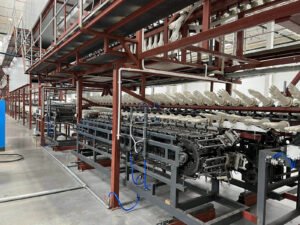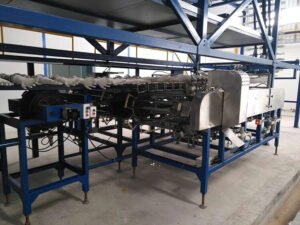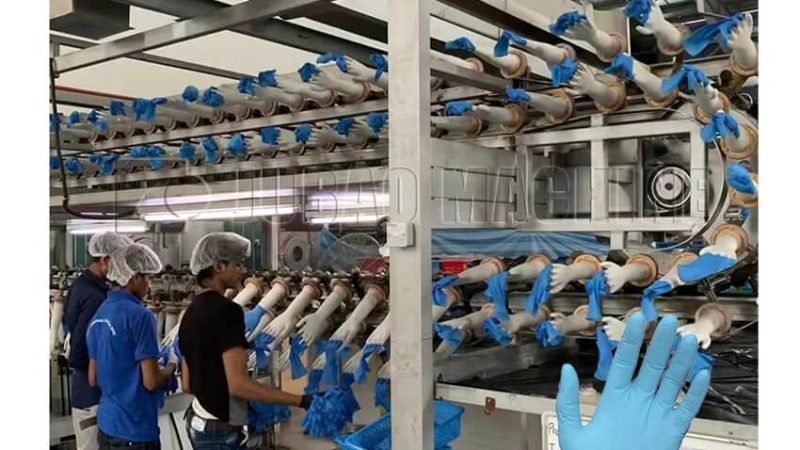Table of Contents
- Introduction
- 1. Raw Materials Feeding
- 2. Hand Mold Dipping
- 3. Coagulation and Latex Dipping
- 4. Drying and Vulcanization
- 5. Stripping and Collection
- 6. Quality Control and Packaging
- Conclusion
Introduction
A disposable gloves machine is an automated production system used to manufacture various types of disposable gloves, such as latex, nitrile, or vinyl gloves. These machines are essential for producing large volumes of gloves used in healthcare, food handling, and industrial applications. This article outlines the typical manufacturing process of a disposable gloves machine, from raw materials to final packaging.

1. Raw Materials Feeding
The process starts with feeding the machine with raw materials, typically in liquid form. Depending on the glove type, materials can include natural latex, nitrile butadiene rubber (NBR), or polyvinyl chloride (PVC). The disposable gloves machine has reservoirs and pumps to automatically mix and deliver these materials to the next stage.
2. Hand Mold Dipping
The machine uses ceramic or aluminum hand molds that mimic the shape of a human hand. These molds are mounted on a conveyor chain and are dipped into the coagulant solution to prepare them for latex adherence. The disposable gloves machine ensures precise timing and temperature control during this stage.
3. Coagulation and Latex Dipping
After the coagulant dip, the molds are dipped into the latex, nitrile, or PVC solution. This is where the glove forms. The disposable gloves machine controls immersion speed and dwell time to determine the glove’s thickness and uniformity. Double-dipping may be done for thicker gloves or special coatings.
4. Drying and Vulcanization
Next, the gloves pass through a heated oven for drying and vulcanization, which strengthens the material and improves elasticity. This stage is crucial for ensuring that the gloves are durable and safe for use. The disposable gloves machine regulates the oven temperature and conveyor speed to ensure consistent curing.

5. Stripping and Collection
Once cured, the gloves are automatically stripped from the molds. This can be done by mechanical strippers or air-jet systems, depending on the machine model. The gloves are collected and prepared for inspection. Modern disposable gloves machines often include automated stripping to reduce labor costs and improve efficiency.
6. Quality Control and Packaging
The gloves undergo quality control checks for pinholes, tears, and thickness inconsistencies. After inspection, they are counted, stacked, and packed either manually or automatically. A well-designed disposable gloves machine may integrate inline quality checks and automatic boxing systems.
Conclusion
The production of disposable gloves involves a precise and highly automated process made possible by advanced disposable gloves machines. From raw material feeding to final packaging, each step ensures that the gloves meet international safety and quality standards. Investing in a high-performance disposable gloves machine can significantly boost production efficiency and product reliability.
